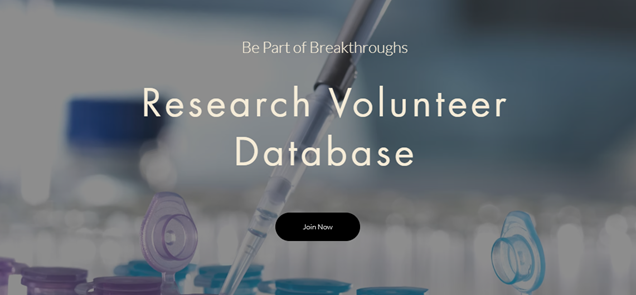
Volunteer for Research
People who volunteer for medical research studies play a vital role in improving healthcare for everyone. Volunteers for these studies help to develop better ways of preventing, diagnosing and treating different health conditions.
Our research at NCID focuses on preparing Singapore for infection outbreaks. Some of the studies we conduct are to develop new vaccines, new diagnostic tests, understand the pattern of different infections, and human challenge studies.
There are many different types of volunteers who participate in medical research. Volunteers may be healthy, at risk of developing a medical condition, or already diagnosed with a condition. Our research could not be conducted without the volunteers' valuable time and contributions.
If you are interested in being informed about studies that are looking for volunteers, please fill up the form below. We will contact you when there is a study you may be suitable for.
Information such as the purpose of the study and the responsibilities of volunteers who join these studies will be provided to those who are interested to be part of the clinical research. Participation in research is voluntary and you may stop at any time.
This volunteer database is hosted by the National Centre for Infectious Diseases (NCID) and supported by the Programme for Research in Epidemic Preparedness and REsponse (PREPARE). Together, we ensure your contributions are impactful, safe, and essential to advancing public health and preparing for future health challenges.
Join now!
Discover More
On-going studies
Are you looking for a way to get involved in groundbreaking medical research and make a difference in the fight against infectious diseases? Join us in one of the on-going studies listed below.
